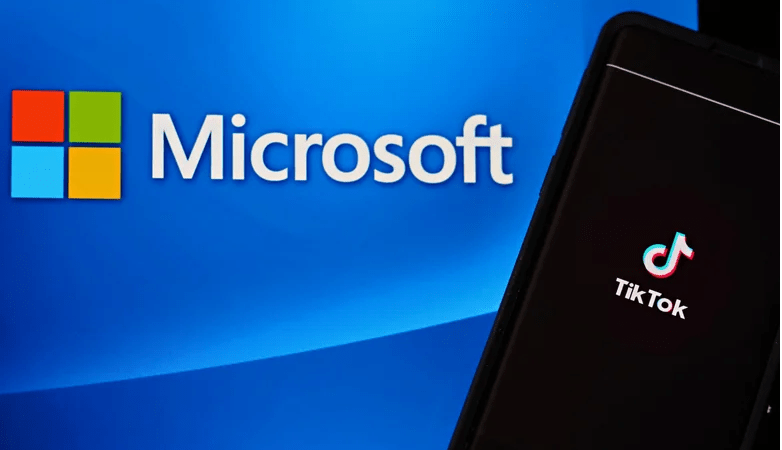My take on Microsoft’s proposed acquisition of Tik Tok
One of the biggest factors that tended to undermine my professional accomplishments as a young professor in America is the failure to be sufficiently focused. I am blessed by God to be able to do many things better than most people; which I now see as a liability. When I was in HSC in a […]

One of the biggest factors that tended to undermine my professional accomplishments as a young professor in America is the failure to be sufficiently focused.
I am blessed by God to be able to do many things better than most people; which I now see as a liability. When I was in HSC in a Federal Government College in Nigeria, I was the Secretary of the French Club, even though my major was Mathematics, Physics, and Chemistry. I spoke better French than a few of our French majors. Looking back now, this was a very bad idea. You need to focus, so you can be the best in one thing. I remember when Michael Jordan, one of the greatest basketball players of all time, dabbled into baseball, with the hope of reproducing his success in basketball. The result was disastrous; so, he quickly gave up. So, don’t be all over the place, even if you can! Whatever you do must mutually enhance and come together under one understandable vision.
The failure to focus occurs in individuals and business entities alike, and the need to focus becomes even more serious when competition is very stiff. During the stone age, humans needed to be generalists in order to survive the wild. Life was tough – you had to fight for survival in the jungle, fend for your food, and virtually do everything on your own. No wonder, even today, some of my contemporaries in both America and Africa still hail the ability to do many things “well.” Unfortunately, in today’s world – at least in the West – people who thrive may just be those who focus. It’s as simple as A-B-C.
The big news in technology last week is Microsoft’s planned acquisition of the Chinese company Tik Tok. Like many organizations, Microsoft has acquired quite a few companies, with mixed results. However, if you analyze the problems very critically, you can almost predict, with high probability, which acquisitions will work, and which ones will not. It’s all about meshing well, or the ease of incorporating the new entities into the existing framework; within the overall vision. When Microsoft entered cloud computing, it trailed, not just Amazon, but also Google, Rackspace, Salesforce.com, and Vmware. But thanks to leverage, Microsoft is now Number Two in the cloud business.
It is well known that Microsoft is behind in mobility (cell phone technology), but it is not for the lack of trying! Furthermore, Microsoft’s problem with mobile business is not caused by an inferior product or operating system (OS). Technically-speaking, Windows Mobile (WM) OS is perhaps superior to Apple’s iOS and to Android, but folks were not using WM products because there were no apps, and apps were not developed because there were no demands for WM products. The real problem seems to be the difficulty-of-use and the absence of glitz and jazziness in WM products when compared to iPhone or even the Android phones. So, WM/Nokia failed, and Microsoft had to write off the $7.6 billion used to acquire Nokia, and reportedly also laid off 7,800 Nokia employees. Microsoft’s $605 million investment in 2012 into the Nook e-reader developed by Barnes and Noble, apparently also fizzled out.
On the other hand, LinkedIn is doing well under Microsoft, simply because the platform is “serious-” just like Microsoft’s other products – and is not conceptually different from a productivity tool. After all you get on LinkedIn so you can be hired in a place where you can be productive. In 2016, Microsoft Corp. raised eyebrows when it shelled out more than US$26 billion to acquire LinkedIn Corp., making it the largest acquisition in Microsoft’s history. Four years on, there are signs the bold move has paid off, as the user base has grown by almost 50 per cent and revenue has also increased – to almost $7 billion in the third quarter of 2019, although the COVID-19 pandemic will probably cut growth in half this time around.
I was skeptical of the LinkedIn acquisition, but Microsoft has done a great job of making this work. Thanks to an improved (LinkedIn) product, which gets folks more engaged. This brings in more ad income which, in turn, leads to more subscription, more user data, and better recruiter products, all inter-feeding in a nonlinear manner. Four years on, the willingness of Microsoft to allow LinkedIn to largely operate as an independent business, could also be one of the main reasons for the success of LinkedIn under Microsoft. However, personally, I think the core reason is the compatibility in portfolio, which is manifested in Microsoft’s insertion of LinkedIn into Outlook and enabling more integration between LinkedIn Sales Navigator and Microsoft’s Dynamics 365. Moreover, LinkedIn has been moved to Microsoft’s Azure cloud. The pieces just fit together.
So, will Tik Tok do well under Microsoft? I don’t think so because the match does not seem to have been made in heaven! I would suggest Microsoft should leave Tik Tok stuff to entities like Facebook, and, to some extent, Apple and Google, who seem to have built the portfolio for jazzy platforms, and they are not going away. Tik Tok is not a productivity platform, the way Skype and LinkedIn are.
